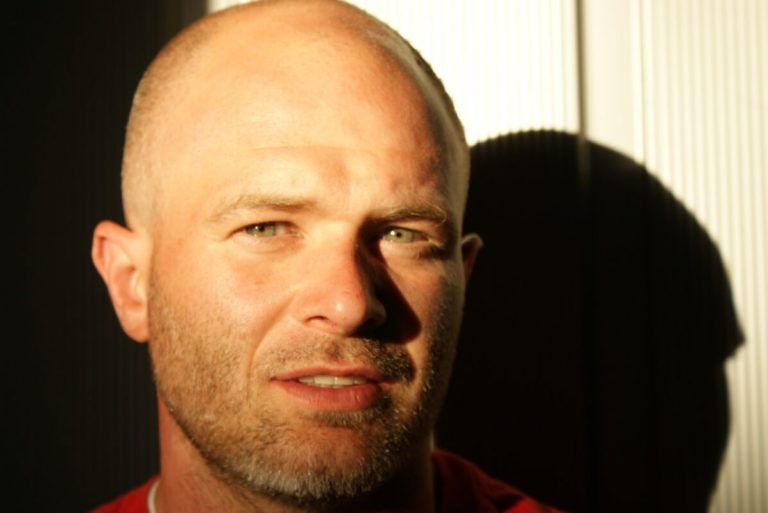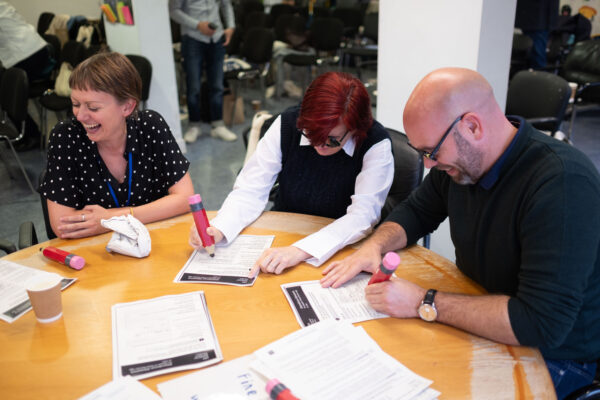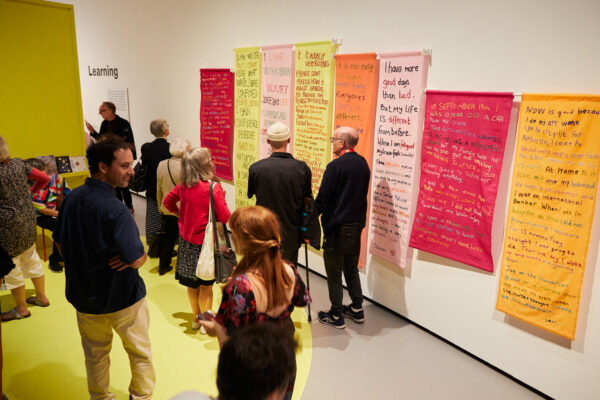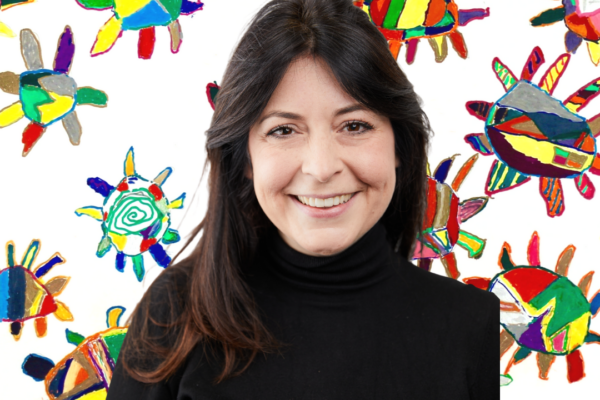Peter Brown Hoffmeister is the author of five books including the critically acclaimed adult novel Graphic the Valley and his most recent novel: Too Shattered for Mending. Living in Eugene, Oregon with his wife and daughters, Hoffmeister helps run the ‘Integrated Outdoor Program’, an opportunity for teens of all backgrounds to explore the wilderness via backpacking, climbing, orienteering or white-water rafting. Headway’s intern, Kitty, caught up with him to discuss his experiences as a writer, adventurer and how things changed after his brain injury.
Hey Peter, thanks so much for chatting with us! First of all, tell me a little about yourself, your background and your current projects?
I’m an author and an outdoor athlete (rock climber, rafting guide) and I help run the Integrated Outdoor Program in Eugene, Oregon.
As an author, I’m trying to write a quality novel that my agent can sell. Before my accident, I signed five book deals in five years. That fifth and final book came out this last fall (Too Shattered For Mending…ironically). Since my accident, I’ve written two full and terrible attempts at a novel! But I’m doing cognitive therapy and vision therapy, and I’m hopeful regarding the future. I write every day and I keep working toward improvement.
As an adventurer, I’m kayaking the East Fork of The Owyhee River for the next seven days, one of the most remote river forks in the lower 48 states. And as a rock climber, I’m working on learning how to speed climb before an adventure race that’s scheduled for June 10th.
My brain injury – a traumatic brain injury – happened when I was biking to work and was hit by a car, a small SUV. That was in December of 2014, so my TBI is now over three years old.
My life changed completely. I used to be a full-time teacher, wrote a book each year, and led adventures all the time (climbing, white-water rafting, survival shelter building, etc.). I used to be SO busy. And now I’m not very busy at all. I stay home for the first half of each day, write as well as I can, then go to school and teach one class in the afternoon.
Tell me more about your outdoor pursuits, what inspires you to work with teens outdoors?
First of all, I love working with teens. I love their energy and senses of humour. They’re more fun than most adults. They still remember to have fun. Also, young people are honest and open. They care what you think and they’re trying to figure out their lives. I’m grateful to be a part of their growing-up process.
When we go outside together, we’re even more engaged, challenged in a different way. It’s not the same as being inside in a classroom, under fluorescent lights, within the cement walls of a school and its artificial structure. Natural laws apply, and – of course – natural laws are more real.
Also, our program integrates learning. So if we’re reading Pam Houston essays and Desert Solitaire by Ed Abbey, we take our students out in the desert to camp, navigate in the backcountry, rock climb, and build survival shelters. These are experiences that most teachers and students don’t get to share with each other.
What is it about being outdoors that you enjoy so much?
I’ve always loved the outdoors. My dad and mom took me fishing and camping when I was two years old. I netted a fish, fell in the river, and loved it.
Or at least that’s what they told me. I don’t remember that, but I do know that I’ve loved it ever since. I love watching the non-human world: Birds and snakes and ants and Pinacate Beetles. The clouds. The rotation of the stars. The way a river runs through a gorge, the eddy pools going deep. And I also like the quiet. The natural light. The weather, snow or mixed clouds or sunshine. There isn’t much I don’t like. I even like cooking or reading outside.
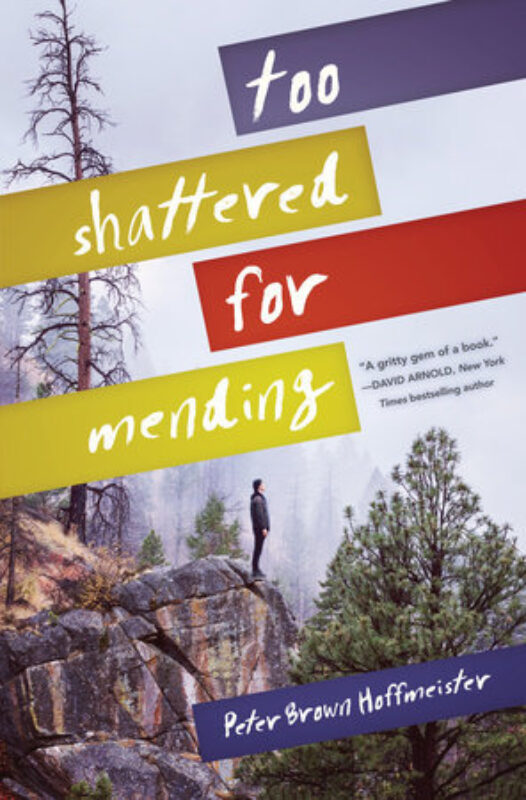
Tell me about your most recent work, Too Shattered for Mending, Where did the idea come from?
In a way, it’s like so many other stories. I started with a love triangle (two brothers who love the same girl) and a disappearance (of the grandfather, the town’s methamphetamine king).
So even though it’s categorized as a literary novel with a young narrator, it’s actually a flawed romance and a mystery novel set in a small, dying town in western America. I wanted to write really strong female characters, since I live in a house of all girls, and I’ve been told that I was successful in that goal. People write me fan letters about Rowan and Willa and Zaylie, and that feels good. I was able to create what I wanted to create.
While I wrote the draft of the book (and my agent sold it a month before my brain injury), I revised and edited the novel after my brain injury. That was one of the hardest things I’ve ever done. It was incredibly difficult to bring all of the threads back together. My editor at Knopf/Random House, had some excellent revision ideas though, encouraging me to develop threads that made the book stronger. I’m thankful for her help and guidance.
I don’t know if I’m right about this, but I like to think of my post-injury brain as more creative in certain ways, and that Too Shattered is a better book because I revised it post-injury.
It’s my only novel to receive starred reviews from every single reviewer (Publishers Weekly, Kirkus, and School Library Journal), and it’s my only novel to be featured in the New York Times.
Too Shattered was also just named to the Bank Street Best Books of 2018 list.
What’s your process as a writer; what do you enjoy about it, what do you find difficult?
I love starting drafts, revising drafts, and editing drafts. But I always have a hard time finishing the story, making everything come together in a way that I like. Because of this, I often write three or four endings and have a hard time choosing between them. That’s the most difficult thing for me, and it’s become even more difficult since my brain injury.
I absolutely love stories and poetry. I love craft. I love metaphors and analogies. I love it when I revise a really, really terrible piece of writing and it starts to come together, starts to mean something, and I realize that I might have a piece of writing that might impact a reader.
Congratulations! That sounds like such a difficult process but all the more rewarding for it. What has being a BI survivor taught you? What advice would you want to share with someone who perhaps has had a brain injury and is struggling to find their feet in creative or physical pursuits?
First of all, it’s okay to be different. I used to be more obsessive and more resistant to change. More prideful. Less understanding.
But suddenly – after a brain injury – your whole life is different. You’re more emotional. In some ways, you’re less capable. But you’re also more vulnerable and tender. I need more help than I used to, and I have to take time to recharge or to be by myself (even if this only means a 20-minute nap in the middle of the day or standing in the sun and watching birds for 15 minutes). I can’t be as busy as I used to be, but maybe that’s a good thing. I spend more time with my two daughters. I’ve slowed the pace of my life. I’ve learned to be more honest about my weaknesses. And all of those things are good. So I try to focus on the good.
We only have one life, so we may as well focus on the positive elements in our lives, the adventures, the relationships, the delicious food, great art, our hopes and dreams.
What’s something that you’re grateful for post TBI?
As difficult as it is sometimes – and sometimes I get down, sometimes I get depressed by my brain injury, like anyone would – I try to focus on what’s good. I try to be grateful. Focus on gratitude.
One thing I think about is how much time I’ve gotten to spend with my daughters. I’ve been home a lot the last three years (on full disability at first, then on half-time disability). I have two teenage daughters, and these are really important years. Even though I haven’t been completely healthy, I’ve been here. I’ve been with my daughters. We’ve camped a lot together. We’ve cooked a lot together. We listen to music and have impromptu dance sessions in the kitchen. We talk about life. We’ve been vulnerable and honest with each other. And I’m grateful for that. They’ll be gone soon enough – moving out, going to college – but we’ll always have our time together these last three years.
Before my injury, I was too busy. I taught full-time, wrote every day, and adventured as well. After my injury, everything slowed down. As far as my daughters go, this was a really good thing.
Catch updates and info on Peter’s work at https://peterbrownhoffmeister….
or visit his Facebook & Twitter at:
